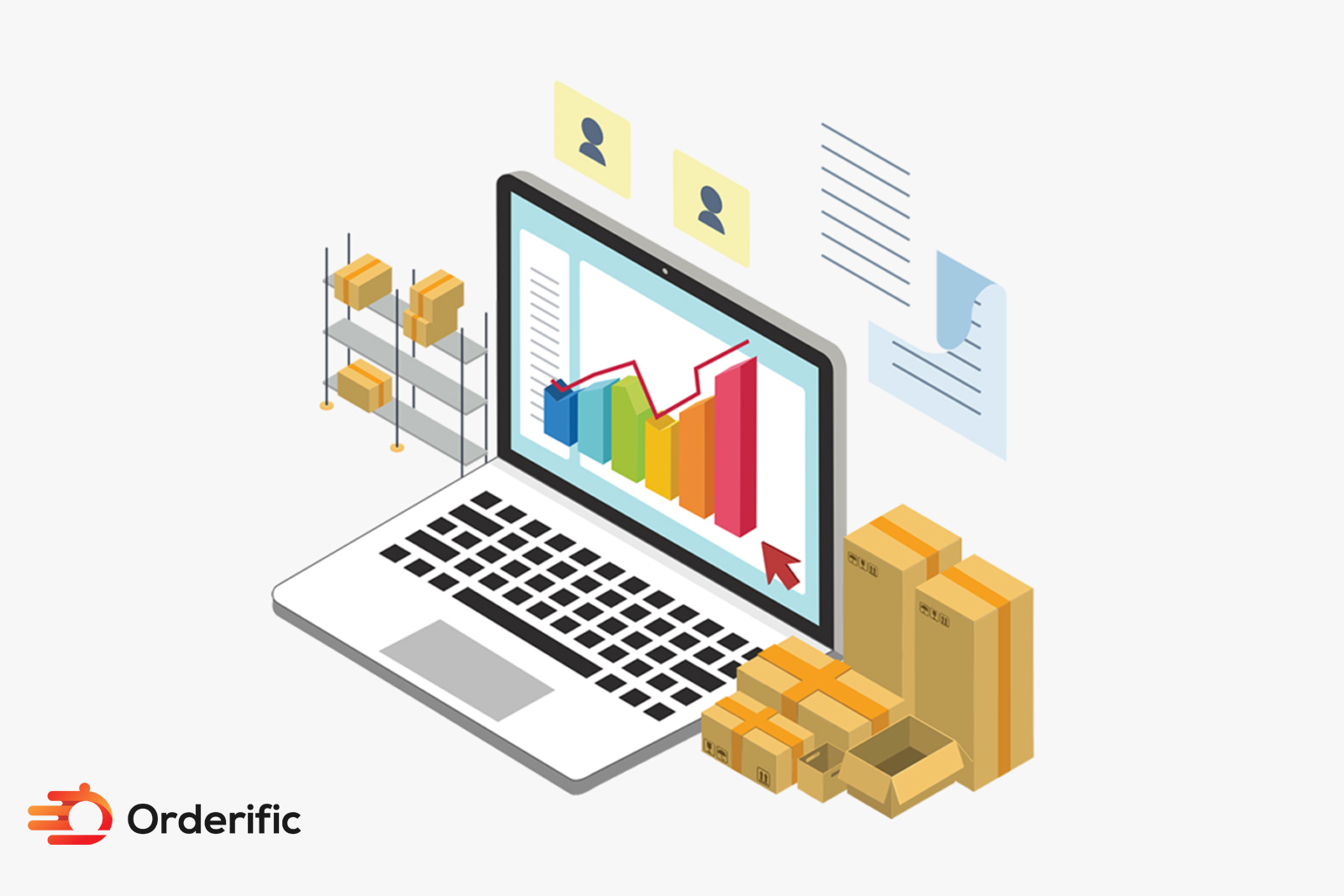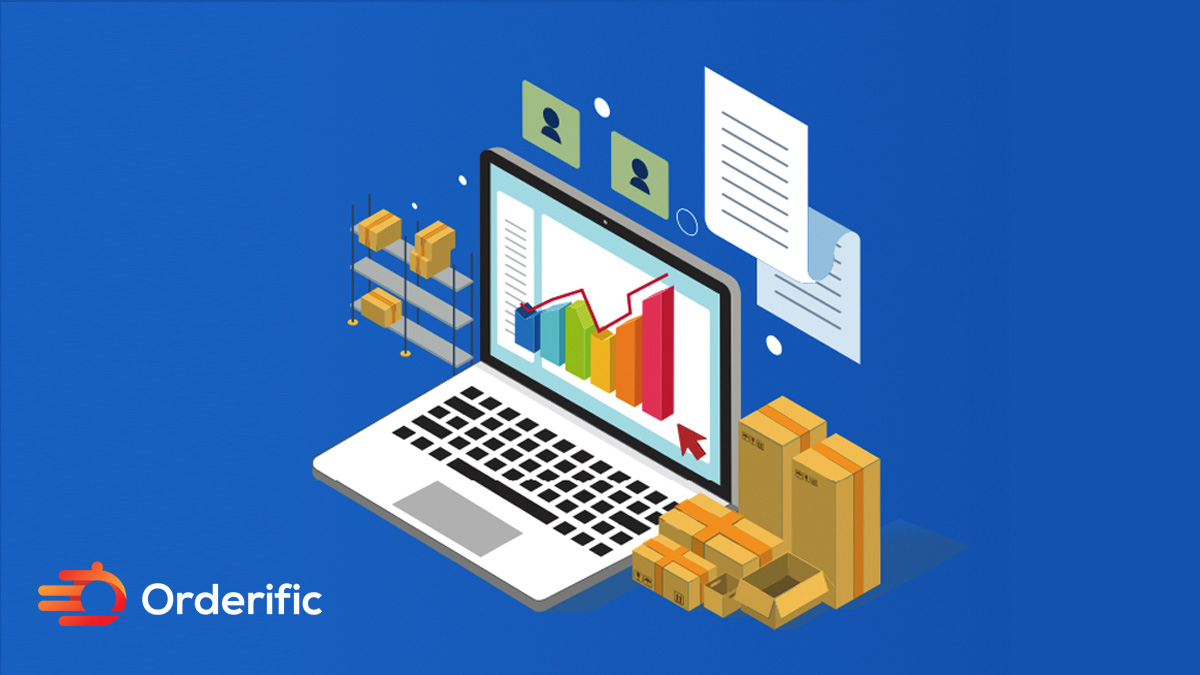Introduction
In the evolving world of grocery retail, inventory prediction, stock optimization is vital to maintaining customer satisfaction and meeting customer demand. Innovative technologies such as Artificial Intelligence are revolutionizing this process, enabling unprecedented precision in demand forecasting, inventory optimization, and supply chain operations. AI algorithms analyze historical sales data and discern demand patterns to generate accurate predictions of future demand. This, in turn, facilitates optimum stock levels and minimizes the risk of excess inventory, thereby increasing operational efficiency. Let’s delve into the transformative role of AI in grocery inventory management and how it’s paving the way for a more streamlined, predictive, and customer-driven approach.
What Is Inventory Management?

Inventory management, at its core, is the process of overseeing and controlling the ordering, storing, and using a company’s inventory. This includes managing raw materials, components, and finished products, as well as warehousing and processing such items. Efficient inventory management is crucial because it assists businesses in maintaining the optimal inventory levels needed to meet customer demand, ultimately leading to customer satisfaction.
Inventory management software plays a pivotal role in this process, integrating various aspects of a supply chain and enabling inventory managers to make informed decisions. However, when combined with AI technology, inventory management reaches new heights of precision and predictability.
AI And Inventory Optimization
In the context of grocery retail, AI-based inventory optimization offers numerous benefits. AI algorithms analyze historical sales data, identify demand patterns, and generate accurate predictions of future demand. This allows for maintaining optimized inventory levels, ensuring that the stock on hand meets customer demand without leading to excess inventory.
Inventory optimization also extends to reducing inventory costs. By maintaining optimal inventory levels, businesses can avoid the financial burdens associated with overstocking or understocking. AI-driven inventory solutions also facilitate demand planning, enabling companies to forecast and meet customer demand effectively.
Demand Forecasting And AI
Demand forecasting is one of the key features of AI in inventory management. Through the analysis of historical sales data and the recognition of demand patterns, AI enables the creation of accurate demand forecasts. This process lends itself to the generation of predictive analytics, which contribute to making informed decisions regarding inventory control.
Demand forecasting is not just about predicting future demand. It is also about anticipating fluctuations in customer demand and adjusting inventory accordingly. Implementing AI in this area can lead to significant improvements in operational efficiency and customer satisfaction.
AI For Supply Chain Optimization
The role of AI extends beyond inventory management to include supply chain optimization. By analyzing supply and demand patterns, AI technology can help businesses optimize their supply chains, reducing waste and improving efficiency.
AI systems also assist in reducing the risk of excess inventory by accurately predicting the demand for various products. This allows businesses to maintain ideal stock levels, minimizing the risk of overstocking or understocking, and enhancing overall customer satisfaction.
The Future Of AI In Inventory Management
As AI continues to evolve, its role in inventory management and supply chain optimization is set to increase. AI inventory management software and Artificial intelligence inventory optimization tools are becoming more sophisticated, offering businesses greater accuracy in demand forecasting and inventory planning.
The use of generative AI in predicting future demand, coupled with Artificial intelligence solutions for inventory control, will enable businesses to maintain optimal inventory levels, meet customer demand more effectively, and ultimately enhance customer satisfaction.
In conclusion, AI plays a transformative role in grocery inventory management. By leveraging the power of Artificial intelligence, businesses can ensure customer satisfaction, meet customer demand more accurately, and operate their supply chains with greater efficiency. As businesses continue to embrace AI technology, the future of grocery inventory management looks promising.
Seven Ways AI Can Enhance Inventory Management
1. The Intersection of AI and Inventory Management
Artificial Intelligence is increasingly becoming the cornerstone of inventory management, thanks to its ability to streamline operations and enhance customer satisfaction. AI-driven inventory optimization initiatives are reshaping the way businesses approach inventory management. Artificial intelligence algorithms, equipped with powerful predictive capabilities, assist in interpreting historical sales data and identifying demand patterns. This results in highly accurate demand forecasts, ensuring optimized inventory levels and facilitating effective inventory control.
2. The Vital Role of Forecasting in Inventory Management
Forecasting, especially demand forecasting, plays a crucial role in inventory management. By leveraging the power of AI, businesses can effectively predict future demand and ensure that their inventory levels are always aligned with customer demand. This is achieved by employing AI forecasting techniques that analyze historical sales data and discern demand patterns, leading to the generation of predictive analytics. The outcome? More informed decisions, superior stock control, and higher levels of customer satisfaction.
3. AI, a Game-Changer in Inventory Optimization
Inventory optimization is a pivotal aspect of inventory management. With AI-based inventory optimization, businesses can maintain optimal inventory levels, thereby avoiding the unnecessary costs associated with overstocking or understocking. AI-driven inventory solutions also aid in demand planning, empowering businesses to anticipate and meet customer demand effectively.
4. Supply Chain and Inventory Management: A Symbiotic Relationship
No discussion about inventory management would be complete without considering the broader supply chain. Artificial intelligence systems are instrumental in optimizing supply chain operations, leading to reductions in waste and enhanced operational efficiency. This, in no small measure, contributes to the overall effectiveness of inventory management, laying the foundation for effective inventory control and customer satisfaction.
5. AI Inventory Management Software: A Revolutionary Tool
AI inventory management software has emerged as a revolutionary tool in modern inventory management. With an ability to predict future demand and aid in inventory planning, these AI solutions are at the forefront of ensuring optimal inventory levels. They help businesses meet customer demand more effectively, thereby boosting customer satisfaction.
6. The Role of Generative AI in Inventory Management
Generative AI presents exciting possibilities in inventory management. By predicting future demand, generative AI, when combined with effective inventory control measures, can ensure optimal inventory levels and meet customer demand more accurately.
7. The Future of AI and Inventory Management
As AI continues to advance, it is certain to play an even more transformative role in inventory management. The advent of AI inventory optimization tools and AI inventory management software is set to offer businesses even greater precision in demand forecasting and inventory planning. This will enable businesses to maintain ideal stock levels, effectively meet customer demand, enhance customer satisfaction, and operate their supply chains with a height of efficiency hitherto unseen. The future of grocery inventory management, with AI at its helm, is indeed promising.
Effortless Demand Forecasting
Demand forecasting is a fundamental element in inventory management, particularly in the grocery sector. Accurate forecasting can help businesses maintain optimal inventory levels, avoid excess inventory and, above all, meet customer demand effectively. Amidst the various tools available for this purpose, AI technology has emerged as a game-changer, infusing demand forecasting with unprecedented levels of precision and predictability.
AI-driven inventory solutions utilize AI algorithms to analyze historical sales data and discern demand patterns. These analyses result in highly accurate demand forecasts that enable businesses to anticipate future demand, adjust stock levels accordingly, and in turn, enhance customer satisfaction. The role of AI in demand forecasting isn’t limited to predicting customer demand, but also includes anticipating fluctuations in demand and adjusting inventory levels in response – a proactive approach that significantly boosts operational efficiency.
AI And Inventory Optimization: A Symbiotic Relationship
Inventory optimization is an integral component of inventory management, one that plays a massive role in maintaining customer satisfaction and meeting customer demand. AI technology has significantly augmented the process of inventory optimization, delivering a host of benefits to businesses.
AI-based inventory optimization solutions utilize AI algorithms to analyze historical sales data, helping businesses identify demand patterns and make accurate predictions of future demand. By aligning stock levels with these predictions, AI-driven solutions facilitate the maintenance of optimized inventory levels, ensuring that businesses neither overstock nor understock, thereby avoiding unnecessary inventory costs.
AI Augmenting Supply Chain Operations
The impact of AI extends beyond inventory management and into the broader realm of supply chain operations. AI systems are instrumental in analyzing supply and demand patterns, enabling businesses to optimize their supply chains, thereby reducing waste and enhancing operational efficiency.
AI technology also assists in reducing the risk of excess inventory by making accurate predictions of customer demand. This allows businesses to maintain ideal stock levels, minimizing the risk of over or understocking, and consequently boosting customer satisfaction.
The Role Of AI Inventory Management Software
Modern inventory management is being revolutionized by AI inventory management software. This technology is designed to predict future demand accurately, aiding inventory planning, and ensuring optimal inventory levels. The end result is a more efficient operation that can respond agilely to customer demand, enhancing customer satisfaction.
Generative AI: The Future Of Inventory Management
Generative AI offers exciting potential in the realm of inventory management. By predicting future demand, generative AI, when combined with effective inventory control measures, ensures optimal inventory levels and more accurately meets customer demand.
Overall, AI plays an invaluable role in inventory management. By leveraging the power of AI, businesses can ensure customer satisfaction, meet customer demand more accurately, and run their supply chains more efficiently. The future of grocery inventory management, aided by AI, undoubtedly looks promising.
Improved Productivity Through AI Algorithms
Artificial Intelligence (AI) algorithms have become a pivotal tool for inventory managers. The integration of AI in inventory management has resulted in unprecedented efficiency and accuracy in controlling and maintaining optimal inventory levels. The power of AI lies in its ability to analyze historical sales data, discern demand patterns, and generate accurate forecasts of future demand. This ensures that businesses can avoid the detrimental consequences of overstocking or understocking, reducing unnecessary inventory costs, and ensuring customer satisfaction.
Revolutionizing Demand Forecasting With AI
Demand forecasting is a critical aspect of inventory management. It is the process of predicting future demand for various products, enabling businesses to align their inventory levels with anticipated customer demand. The role of AI in demand forecasting is transformative. AI algorithms analyze historical sales data, recognize demand patterns, and generate highly accurate forecasts. This enables businesses to anticipate fluctuations in customer demand and adjust their inventory levels accordingly. The result is an improved operational efficiency that significantly enhances customer satisfaction.
Inventory Optimization And AI: An Inseparable Duo
Inventory optimization is a key element of inventory management. It involves maintaining the right amount of stock to meet customer demand without incurring the costs of excess inventory. AI-based inventory optimization is a game-changer in this regard. By leveraging AI algorithms, businesses can predict future demand accurately, align their inventory levels with this prediction, and maintain optimal stock levels. This results in a more efficient inventory management process, reduces wastage from overstocking, and ensures customer satisfaction.
Supply Chain Enhancement Through AI
AI technology plays a significant role in the broader scope of supply chain operations. By analyzing supply and demand patterns, AI systems enable businesses to optimize their supply chains, thereby enhancing operational efficiency and reducing waste. Additionally, AI technology helps to minimize the risk of excess inventory by making accurate predictions about future customer demand. This ensures that businesses can maintain ideal stock levels, thus minimizing the risk of overstocking or understocking, and ultimately improving customer satisfaction.
The Promising Future Of Generative AI In Inventory Management
Generative AI represents an exciting evolution in the realm of inventory management. It’s a technology that can predict future demand with high accuracy. When coupled with effective inventory control measures, generative AI ensures that businesses maintain optimal inventory levels and meet customer demand more accurately. The use of generative AI in inventory management provides businesses with a powerful tool to enhance operational efficiency, customer satisfaction, and profitability.
Redefining Inventory Management With AI-Based Software
AI inventory management software is a trailblazing tool in modern inventory management. Designed to predict future demand accurately, this technology aids businesses in inventory planning, facilitating the maintenance of optimal inventory levels. As a result, businesses can operate more efficiently, respond agilely to customer demand, and enhance customer satisfaction.
In conclusion, the role of AI in inventory management is invaluable. With its impressive capabilities in demand forecasting, inventory optimization, and supply chain enhancement, AI technology promises to transform the future of inventory management. Businesses that leverage the power of Artificial intelligence can ensure customer satisfaction, meet customer demand more accurately, and operate their supply chains with unprecedented efficiency.
Better Customer Support Using Chatbots
AI-powered chatbots are making a strong impact in the realm of customer support, particularly in the grocery industry. Leveraging their ability to provide instant, automated responses, chatbots enhance customer satisfaction by offering around-the-clock assistance. They handle routine inquiries, guide customers through online purchasing journeys, and provide personalized product recommendations based on customer data. Furthermore, they play a pivotal role in demand forecasting. By analyzing customer interactions and queries, chatbots can predict trending products and potential shifts in consumer demand. This valuable insight aids in maintaining optimal inventory levels and ensures businesses meet customer demand effectively. In conclusion, Artificial intelligence chatbots are a powerful tool in providing superior customer support and driving efficient inventory management.
Wiser Warehouse Management
Artificial Intelligence is revolutionizing the landscape of warehouse management. With the use of AI-powered autonomous robots, businesses can automate crucial warehouse operations such as picking, packing, sorting, and transporting goods. This not only streamlines processes but also significantly reduces the margin for human error, resulting in improved output quality and overall operational efficiency. Moreover, Systems can manage and track inventory in real-time, ensuring a seamless flow of goods in and out of the warehouse, and thus maintaining optimal inventory levels. They also analyze historical sales data to predict future customer demand, helping businesses avoid overstocking or understocking scenarios. In essence, Artificial intelligence enables smarter, more efficient warehouse management, contributing to improved customer satisfaction by ensuring that customer demand is effectively met.
Minimized Downtime Through The Help Of Predictive Analytics
Predictive analytics, powered by Artificial intelligence, is a significant tool in minimizing downtime, which is particularly crucial in grocery inventory management. By analyzing historical data and identifying patterns, AI can forecast potential equipment failures, enabling businesses to take proactive measures in maintenance and avoid unexpected downtime. This not only improves operational efficiency but also ensures a consistent flow of goods, which is paramount to meeting customer demand. Furthermore, predictive analytics can anticipate shifts in demand trends, helping businesses to adjust inventory levels accordingly. Overall, the use of predictive analytics in inventory management leads to more efficient operations, optimal inventory levels, and enhanced customer satisfaction.
Automated Material Procurement
Automated material procurement, powered by Artificial Intelligence, is a revolutionary approach in the field of inventory management. AI algorithms play a crucial role in streamlining the procurement process, thereby enhancing operational efficiency. They analyze historical sales data to discern demand patterns and make accurate predictions of future demand. Consequently, these accurate predictions facilitate informed decisions regarding material procurement, ensuring businesses maintain optimized inventory levels to meet customer demand effectively.
AI-based inventory optimization is a game-changer that provides businesses with the ability to predict future demand accurately. It aligns inventory levels with demand forecasts, ensuring optimal stock levels. This results in a more efficient inventory management process that reduces inventory costs associated with overstocking and guarantees customer satisfaction by fulfilling their demand promptly.
AI Empowering Decision-Making In Inventory Management
Implementing AI in inventory management has redefined the concept of decision-making in this field. Artificial intelligence algorithms, capable of analyzing vast historical sales data, recognize demand patterns and provide accurate predictions of future demand. Inventory managers can use this valuable insight to make informed decisions regarding stock levels, ensuring they neither overstock nor understock.
AI inventory management software, designed to predict future demand accurately, aids in inventory planning. The software facilitates the maintenance of optimal inventory levels, allowing businesses to operate more efficiently, respond agilely to customer demand, and bolster customer satisfaction. In essence, AI technology has transformed inventory management, enabling businesses to optimize their supply chain operations, meet customer demand accurately, and ensure customer satisfaction.
Demand Forecasting And AI: A Powerful Alliance
Demand forecasting is a critical function in inventory management. By predicting future demand for various products, businesses can align their inventory levels with anticipated customer demand. AI plays a transformative role in demand forecasting. AI algorithms analyze historical sales data, identify demand patterns, and generate highly accurate forecasts of future demand. This enables businesses to anticipate fluctuations in customer demand, adjust their inventory levels accordingly, and maintain optimal inventory levels.
The AI-driven inventory solutions utilize AI technology to analyze historical sales data, discern demand patterns, and make highly accurate demand forecasts. These forecasts enable businesses to anticipate future demand, adjust their stock levels accordingly, and in turn, enhance customer satisfaction by meeting their demand effectively.
Optimizing Supply Chain Operations With AI
AI technology has made a significant impact on supply chain operations. By analyzing supply and demand patterns, AI systems enable businesses to optimize their supply chains, enhancing operational efficiency, and reducing waste. In addition, AI technology aids in reducing the risk of excess inventory by making accurate predictions about future customer demand. This ensures that businesses can maintain ideal stock levels, minimizing the risk of overstocking or understocking, and ultimately improving customer satisfaction.
AI inventory optimization software, with its ability to predict future demand accurately, aids in inventory planning and ensures optimal inventory levels. This leads to more efficient operations, the ability to respond agilely to customer demand, and consequently, enhanced customer satisfaction.
The Future Of Inventory Management With Generative Artificial Intelligence
Generative AI is an exciting development in the realm of inventory management. It is capable of predicting future demand with high accuracy. When combined with effective inventory control measures, Generative AI ensures businesses maintain optimal inventory levels and meet customer demand accurately. It is a powerful tool for businesses to enhance operational efficiency, customer satisfaction, and profitability.
In conclusion, AI’s role in automated material procurement and inventory management is indeed invaluable. By leveraging the power of AI, businesses can ensure customer satisfaction, meet customer demand more accurately, and run their supply chains more efficiently. The future of grocery inventory management, aided by AI, undoubtedly looks promising.
More Lucrative Marketing Strategies
Artificial Intelligence is redefining the marketing landscape, particularly in the grocery industry where customer satisfaction is paramount. Artificial intelligence algorithms predict consumer behavior by analyzing historical purchase data and browsing patterns. This enables businesses to create personalized marketing strategies, offering relevant product suggestions tailored to individual customer preferences. By doing so, businesses increase customer engagement and foster a sense of personal connection, enhancing overall customer satisfaction. Furthermore, AI-driven predictive analytics identify potential future trends, facilitating proactive adjustments to marketing strategies. This not only aids in meeting customer demand but also maximizes return on marketing investment. In conclusion, AI is a powerful tool that is transforming marketing strategies, making them more targeted, personalized, and lucrative.
Artificial Intelligence Inventory Management: The Key Takeaways
Artificial Intelligence has emerged as a formidable force in grocery inventory management, significantly enhancing operational efficiency, customer satisfaction, and profitability. It optimizes inventory management by accurately predicting customer demand, ensuring the maintenance of optimal inventory levels, and preventing overstocking and understocking scenarios.
Artificial intelligence-powered systems, such as autonomous robots and predictive analytics, streamline warehouse operations and minimize downtime. By analyzing historical sales data and identifying patterns, these systems forecast potential equipment failures and shifts in demand trends, helping businesses to take proactive measures.
AI is also transforming the procurement process. Artificial intelligence algorithms discern demand patterns and make informed predictions of future demand to facilitate material procurement decisions, ultimately leading to efficient inventory management.
Additionally, Artificial intelligence is revolutionizing the marketing landscape by predicting consumer behavior and identifying potential future trends. This empowers businesses to devise personalized marketing strategies, boosting customer engagement and maximizing marketing returns.
In conclusion, AI’s crucial role in automated material procurement, inventory management, and marketing strategies is undeniable. Businesses leveraging Artificial intelligence can ensure customer satisfaction, meet customer demand accurately, and enhance supply chain efficiency. The future of grocery inventory management certainly looks exciting with AI.
Conclusion
In summary, AI, inventory prediction, stock optimization is proving to be a game-changer in grocery inventory management. Leveraging the power of Artificial intelligence, businesses can accurately predict customer demand, optimize inventory levels, enhance operational efficiency, and drive customer satisfaction. AI has made invaluable contributions to various aspects of the business, from streamlined warehouse operations and predictive analytics to personalized marketing strategies and efficient procurement processes. As we look towards the future, the integration of AI in inventory management seems promising, offering potential for significant enhancements in customer service and business operations. If you wish to harness the power of AI for your grocery business, we invite you to explore Orderific’s advanced solutions further. Please schedule a demo with us to learn more about our AI-powered inventory management solutions and how they can transform your business.
FAQs
How can Al help optimize inventory management?
Artificial intelligence optimizes inventory management by accurately predicting customer demand, ensuring optimal stock levels, and streamlining warehouse operations.
Are there Al tools for optimizing online business profits?
Yes, AI tools like predictive analytics and demand forecasting can significantly optimize online business profits.
What is Al in the logistics and supply chain ecosystem?
Yes, there are Artificial intelligence tools like predictive analytics and demand forecasting systems that can significantly optimize online business profits.
What are the benefits of Al in a supply chain?
AI enhances supply chain efficiency, reduces costs, and improves demand forecasting accuracy.













